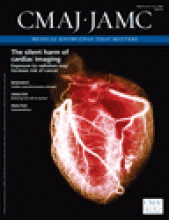An Eritrean couple first saw me at the refugee clinic four months ago in crisis with an unplanned pregnancy. “It is good now,” he says today, gesturing at his wife’s belly. “We are happy.” It is their last prenatal visit before being transferred to an obstetrician. He says a little speech, thanking me for what I’ve done, the support and the kindness. “You helped us when we were new in the country, in trouble.” I feel professional gratification that they were satisfied with my services, and tell them with sincere emphasis that it was my pleasure! to care for them. As I usher them out the door I’ve already forgotten their gratitude.
“That was a beautiful speech,” says the nurse after they leave. “My patients in Uganda used to do that all the time.” I look at her, and I think, Yes, yes it was beautiful. I’ve heard these speeches before, though, thanking me for kindness, and I feel embarrassed that I’m thanked for dispensing something that cost me nothing: no education, no honing of skill, no effort. I’d rather be thanked for diagnostic prowess or a deftly performed procedure. But I extend kindness to patients habitually, with an extra measure when I have nothing else to offer.
Seated in my doctor’s office, I’m in the chair tucked right next to his desk. This is the first visit that I haven’t sat casually on the exam table with my legs dangling over the side, the first time I haven’t popped in for something routine like a vaccination or contraception or a prenatal visit, where we talk shop and I ask about his daughter, a medical school classmate. This time, I’m here to follow up a disastrous ending to a second-trimester pregnancy. He knocks on the door, steps in, gives me a long, sober look as he slowly closes the door, sits down. He sits in silence. I can’t look at him. Finally I force myself to talk, exhausted, crying, despairing and he listens. He leans over his desk, arms folded on it, looking down. Eventually I look at him, at his solemn white-bearded face, and I note that he is flushed. His eyes are damp. And I realize that he is moved by my distress, and I am completely taken aback.

Image courtesy of Fred Sebastian
Over the next few weeks, I think back to our encounter repeatedly. The memory of him sitting there, seemingly with all the time in the world, fully present, saying little but moved by my situation, is an enormous comfort. His kindness is more dear to me than anything he’s done for our family over the years, even his delivery of my daughter.
I see him in follow-up two weeks later. The visit is such a solace that I am certain I am being extended divine kindness; my doctor is the unwitting priest. What a profession! What power! I imagine, longingly, that I could only extend the same to my patients.
And I realize with horror that this kindness, which has affected me so profoundly, is the very one that I use unthinkingly in my own practice, that I dismiss as a personality trait, a last resort for patients for whom I have no medical therapy to recommend. I feel I have been wielding something powerful without any respect for it.
Back at work, I determine to be conscious of what I give to patients, and to receive what they return to me. An elderly Congolese patient with severe osteoarthritis has found a French-speaking family physician near her home. She makes a short, thankful speech, and this time I don’t dismiss the gratitude as grossly disproportionate to what I’ve done for her. “Every visit, I felt better just to see you,” she says. She hugs me; I feel very slight. She presses her cheek against mine and I can feel and smell her hair. “Don’t forget me,” she says through the interpreter. “Come visit my home.”
Weeks later, I see my doctor again. I’m doing much better, and he seems mystified as to why I’ve come. I wanted to check in, I explain. I can see him trying to figure out what I really want from him, thinking we’re doing the doctor-doctor visit dance, where he must guess the investigation, referral or prescription I have in mind. He offers a medication, and I decline. He offers a different one, but I don’t want any medications. He asks again why I’ve come. He has no idea, I realize, no idea how therapeutic his presence is. I don’t want to alarm him, so I don’t give him the simplest answer: that all I needed, quite literally, was to see the doctor.








